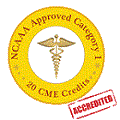
Biography
Biography: Shyam Parashar
Abstract
History of medicine dates back to origin of Humans, either by Creation or Evolution, whichever one believes in. Basically rnthe primary medical needs of humans were related to just three; Relief from pain, healing of wounds and fixing of rninfirmities. Delivery and Child birth were considered as ‘Natural’, and not as medical need.rnModalities to support healing of wounds may be considered as the beginning of ‘Surgery’. Th ese modalities included mostrnprimitive remedies drawn from nature, to time tested treatments prescribed by grandmas, to scientifi cally developed adjunctsrnand now to most recent advances like stem cell research and skin banks. Job of a surgeon is to ‘Surge-on’; and to manage allrntypes of wounds, of all tissues, in all locations on the body, infl icted by external or internal and natural or iatrogenic agents.rnAn ‘Operation’ is the most essential arena of surgical practice. Operation theatre is the only theatre where there are no prior rnrehearsals; and every case is an individual test of competence of surgeon.rnI started my surgery training in 1959. More than half a century has passed since then. I have seen changes in surgical practicernin developing countries like India and Gulf countries as well as in UK and USA. What I saw and performed, as a ‘General surgeon’rnin the interiors of India can only be termed as ‘Handicap surgery’ by today’s standards. Moreover a general surgeon has to managerns urgical problems from head to foot, since even the concept of ‘Specialists’ was beyond reach. In addition, surgical problems inrntropical climates were quite diff erent and were not usually part of any surgical training program.rnFor today’s generation, it may not even be comprehensible to imagine performing surgery without disposables, clips andrnstaples, endoscopes, haemostatic glues, hot, cold and ultrasonic knives and of course, lasers. Preoperative preparations andrnpostoperative managements were primitive, to say the least. ATLS was unheard of and Critical care had no standard protocol;rnit was left to individual judgment. In spite of all this, there is always a humorous side to surgical practice, and ‘Surgeon’s jokes’rnare well known. I may touch on some. It will be my pleasure to speak about Handicap surgery in a philosophical way as a flashback of my surgical experience.

